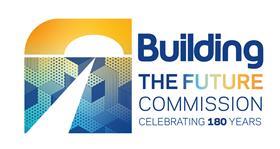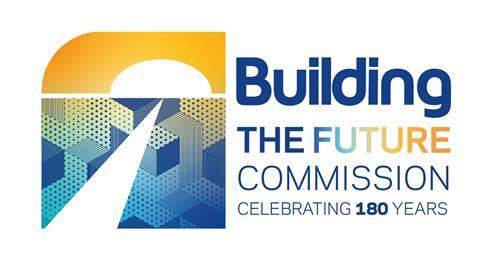Rebuilding loss of trust following Grenfell is crucial for the construction sector and signing up to the non-profit Building A Safer Future’s charter is a good step towards this, writes David Thomas

There is no more important priority for the construction sector than ensuring whatever it builds is safe.
Since the appalling Grenfell fire disaster there has been a lot of debate as to what needs to improve to ensure the construction industry has building safety at the top of its agenda.
Firstly, the building industry must fix past problems. We have always been very clear that we do not believe people should pay for any necessary remediation work to fix legacy building safety issues caused by the design, construction of refurbishment of their buildings. This is why we have provided nearly £400m to our building safety pledge last year and established a dedicated building safety unit to manage our building safety remediation programme.

Then we must look to the future. As identified in Dame Judith Hackett’s report, the Independent Review of Building Regulations and Fire Safety Report, key underlying causes of Grenfell included failures of leadership and culture.
Driving culture change in any industry is challenging but none more so than in the built environment, with so many players and moving parts. But it is vital to achieve this following the loss of trust and confidence post Grenfell.
In her report she makes clear that regulatory change alone will not be enough to reverse the downward spiral of poor practice. Driving culture change in any industry sector is challenging but none more so than in the built environment, with so many players and moving parts. But it is vital to achieve this following the loss of trust and confidence post Grenfell.
This is the backdrop to why the Building a Safer Future (BSF) organisation was set up.
Building a Safer Future (BSF) is an independent, non-profit organisation supporting and driving the systemic culture change required to ensure that buildings are safe for those living and working in them.
Changes and advances in organisational culture do not happen overnight. The BSF champion assessment is an invaluable tool to assist organisations in that ongoing journey – enabling them to identify areas with opportunities for development, to benchmark themselves against the wider industry and to gain an understanding of their current maturity, culture and performance in relation to building safety.
At Barratt we are proud to be one of the first to undertake this robust benchmarking and independent verification process, having successfully completed BSF stage one.
>>See also: Click here for more on the Building the Future Commission
>>See also: Building the Future Commission: introducing the building safety stream
>>See also: The Building Safety Act: what you need to know
We are one of only a handful of companies to have achieved this. We are committed to spearheading cultural change and behaviour across the industry and are a member of the government’s early adopters’ group. The early adopters’ group is taking a leading role in the future development of the Building a Safer Future charter.
We have to ensure continuous review and improve and engage even more widely within the industry.
From this first BSF assessment it’s also clear we have more to do. One of these areas is a greater focus on how to build the ‘golden thread’, how best to transfer key safety information between relevant parties. We have to ensure continuous review and improve and engage even more widely within the industry.
But it was particularly concerning to Health and Safety Executive has raised concerns about some 60% of all applications regarding fire safety for high rise buildings over 18 metres in England. While we are pleased to have recently had three schemes passed through the HSE’s Gateway process, the wider figures shows the scale of the challenge for the whole of the construction industry.
If more organisations can sign up to the BSF charter and champion assessment, it will be another important step in reducing risk post Grenfell. It will help to build confidence, benefiting both the building industry and the wider general public. That can only be a positive step to take as we begin 2023.
David Thomas, chief executive of Barratt Developments
Building the Future Commission

The Building the Future Commission is a year-long project, launched to mark Building’s 180th anniversary, to assess potential solutions and radical new ways of thinking to improve the built environment.
The major project’s work will be guided by a panel of 19 major figures who have signed up to help guide the commission’s work culminatuing culminate in a report published at the end of the year.
The final line-up of commissioners includes figures from the world of contracting, housing development, architecture, policy-making, skills, design, place-making, infrastructure, consultancy and legal.
The commissioners include Lord Kerslake, former head of the civil service, Katy Dowding, executive vice president at Skanska, Richard Steer, chair of Gleeds, Lara Oyedele, president of the Chartered Institute of Housing, Mark Wild, former boss of Crossrail and chief executive of SGN and Simon Tolson, senior partner at Fenwick Elliott. See the full list here.
The project is looking at proposals for change in eight areas:
- Skills and education
- Energy and net zero
- Housing and planning
- Infrastructure
- Building safety
- Project delivery and digital
- Workplace culture and leadership
- Creating communities
>> Editor’s view: And now for something completely positive - our Building the Future Commission
>> Click here for more about the project and the commissioners
Building the Future will also undertake a countrywide tour of roundtable discussions with experts around the regions as part of a consultation programme in partnership with the regional arms of industry body Constructing Excellence. It will also set up a young person’s advisory panel.
We will also be setting up an ideas hub and we want to hear your views.
>> Email buildingfuturecommission@building.co.uk to get in touch




























No comments yet